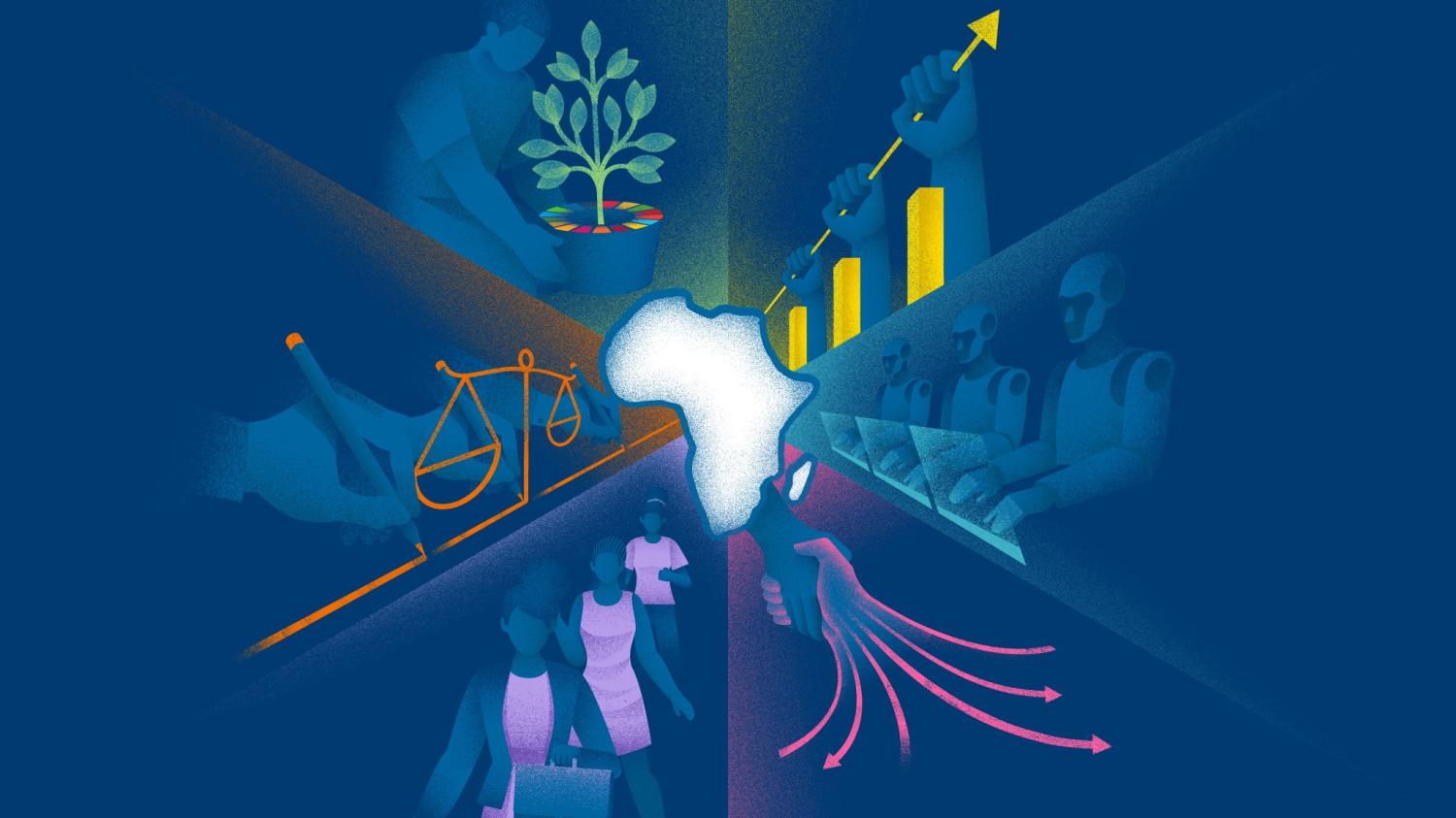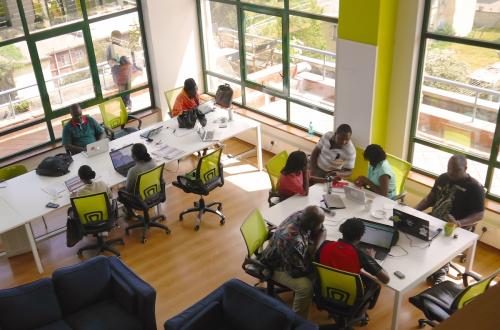This viewpoint is part of Chapter 5 of Foresight Africa 2025-2030, a report with cutting-edge insights and actionable strategies for Africa’s inclusive and sustainable development in the run-up to 2030. Read the full chapter on AI and emerging technologies.
By investing in the infrastructure, innovation, and inclusivity needed to bridge the digital divide, Africa has the potential not only to transform its economies but also to redefine its place in the global digital economy.
The adoption of digital technologies by firms is a critical driver of productivity and economic growth for developing economies. While there have been notable advancements in digitalization—particularly in mobile payments—the overall use of digital technologies among businesses in Africa remains low.1
Despite the proliferation of mobile phones and increasing internet connectivity, many African firms do not fully leverage digital technologies for core business functions. Recent International Finance Corporation (IFC) research indicates that less than one-third of firms that have adopted digital technologies use them intensively for their most productive purposes such as business administration, planning, and sales.2 Our analysis shows that 600,000 formally registered firms and 40 million microbusinesses in Africa could benefit from digital upgrades.
Several factors explain the disparities in technology adoption:
- High costs of hardware and software: Digital devices, machinery, and software are significantly more expensive in sub-Saharan Africa compared to other regions. For example, the cost of digitally enabled machinery and equipment, including software, is approximately one-third higher than in the United States, even before adjusting for the lower purchasing power in Africa (Figure 36).
- Limited digital infrastructure: A lack of reliable infrastructure impedes digital adoption. Approximately 600 million Africans—about half of the continent’s population—do not have access to electricity. A comparable number lacks 4G mobile coverage. Without these fundamental services, businesses cannot effectively utilize digital technologies (Figure 37).
- Expensive data plans and connectivity: The cost of internet connectivity remains prohibitively high for many African firms and individuals. Fixed broadband internet in sub-Saharan Africa averages around 20% of per capita gross national income, compared to less than 6% in other developing regions and 1% in North America.
Addressing these challenges will require the following:
- Investing in digital infrastructure: Enhancing middle- and last-mile digital infrastructure to improve internet access and reduce connectivity costs. The planned expansion of submarine fiber-optic cables is projected to increase international internet bandwidth sixfold by 2027. This expansion could lower broadband prices and stimulate up to $32 billion in investment over the next five years.
- Promoting competition among service providers: Increasing competition in the telecommunications and internet service sectors to reduce prices and improve services.
- Supporting innovative tech startups: Encouraging the growth of startups that offer affordable and user-friendly digital solutions to facilitate technology adoption among firms. Africa’s startup ecosystem is expanding rapidly, with the number of tech hubs tripling between 2016 and 2021. Providing these startups with access to finance—particularly those incorporating disruptive technologies in sectors like agriculture, health, and education—can help overcome financial barriers and promote widespread digital integration.
Closing the digital gap has significant implications for Africa’s economic prosperity. IFC’s research demonstrates a strong positive association between increased digitalization and higher levels of firm productivity. Firms that intensively use digital technologies can enhance operational efficiency, access new markets, and integrate into global value chains. By investing in the infrastructure, innovation, and inclusivity needed to bridge the digital divide, Africa has the potential not only to transform its economies but also to redefine its place in the global digital economy.
-
Footnotes
- Digital Opportunities in African Businesses,” International Finance Corporation Research Series, (Washington D.C.: The World Bank Group, 2024), https://openknowledge.worldbank.org/server/api/core/bitstreams/0bd11c26-2cac4629-ad7f-d28fb390da60/content.
- Digital Opportunities in African Businesses.
The Brookings Institution is committed to quality, independence, and impact.
We are supported by a diverse array of funders. In line with our values and policies, each Brookings publication represents the sole views of its author(s).









Commentary
Bridging the digital divide in Africa: Enhancing technology adoption for economic growth
April 29, 2025